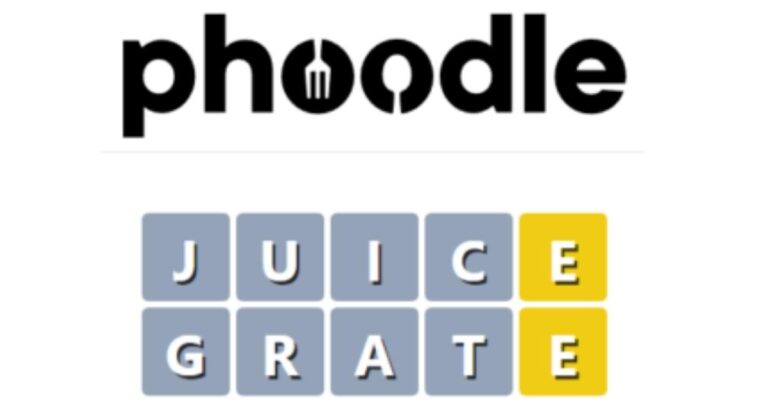NFL Admits to Costly Officiating Error in Packers-Eagles Playoff Game: What Went Wrong and What It Means for the League
In a dramatic twist that has left Green Bay Packers fans frustrated and NFL critics fuming, the NFL admits to costly officiating error in Packers-Eagles playoff game—a mistake that potentially altered the outcome of a crucial postseason matchup. While controversy in professional football officiating is nothing new, this particular error, which occurred on the very first play of the game, has reignited debate about the quality of officiating and the league’s accountability mechanisms.
The Play That Sparked the Firestorm
Things couldn’t have started worse for the Green Bay Packers in their playoff clash against the Philadelphia Eagles. On the first snap, the Packers appeared to recover a fumble, giving them a golden opportunity to take early control of the game. Instead, the officials ruled possession in favor of the Eagles—a decision that was not only highly questionable in real-time but was later acknowledged by the league as incorrect.
This misjudgment set the tone for a game that many fans and analysts believe was unfairly tilted from the outset. According to multiple sources including Sports Illustrated and NFL Network’s Tom Pelissero, the league privately and publicly acknowledged the mistake days after the game, confirming what Packers fans had already feared: NFL admits to costly officiating error in Packers-Eagles playoff game.
Also Read: Game Night Dress to Impress
A League of Accountability—or Not?
This isn’t the first time the NFL has admitted to officiating blunders after the fact, but the admission in this case carries heavier weight due to the playoff stakes involved. The playoff loss effectively ended the Packers’ postseason journey, leaving many to wonder how differently things might have played out had the officiating been accurate from the start.
The NFL issued a formal statement, acknowledging that a penalty for unnecessary roughness should have been called on Eagles linebacker Oren Burks for illegal use of the helmet. The league also fined Burks $8,333 for the hit—an amount that feels almost symbolic compared to the gravity of the error. This admission only added salt to the wound, as fans saw it as too little, too late. Still, the fact that the NFL admits to costly officiating error in Packers-Eagles playoff game sets a precedent in terms of transparency, albeit an imperfect one.
How Social Media Reacted
Social media exploded with reactions the moment the admission was made public. Reddit threads in r/GreenBayPackers lit up with hundreds of comments, most expressing outrage and disbelief. One popular post summarized the mood: “The fact the refs got a no-call flag and gave the ball to the wrong team on the same play is inexcusable.”
On Twitter/X, hashtags like #NFLFail, #PackersVsRefs, and #EaglesControversy trended for hours. Fans, analysts, and former players weighed in, with many pointing out that this wasn’t just a bad call—it was a game-changing error. YouTubers and sports podcasters dubbed it “one of the worst playoff officiating mistakes in recent memory,” further amplifying the narrative that the NFL admits to costly officiating error in Packers-Eagles playoff game because it simply couldn’t deny the obvious any longer.
Also Read: Antony Starr Mobile Game Ad
Breaking Down the Officiating Breakdown
Upon closer inspection, the play had multiple elements that could have—and should have—triggered a reversal or a penalty:
- Fumble Recovery Dispute: Video replays clearly showed that the Packers recovered the ball.
- Helmet-to-Helmet Contact: Eagles linebacker Oren Burks made illegal contact that warranted a penalty.
- Whistle Timing: Referees appeared confused, with some even hesitating to blow the whistle, contributing to the chaotic sequence.
Despite having access to multiple camera angles and real-time replay review systems, the officiating crew failed to make the correct call on the field and did not overturn the decision upon review. It’s no wonder then that the NFL admits to costly officiating error in Packers-Eagles playoff game, as there was simply no defensible position to stand on.
The Fallout: Packers Fans Demand Change
Green Bay fans are not taking this lightly. In the days following the league’s admission, thousands of fans signed petitions demanding officiating reform and greater accountability. Packers supporters argue that this wasn’t just a bad call—it was a fundamental failure of the system designed to ensure fairness in the most critical games.
Sports radio stations across Wisconsin and national shows alike echoed the sentiment. Many believe the NFL needs to introduce a formalized “Officiating Accountability Report,” which would be released to the public after every game, especially during the playoffs. If the NFL admits to costly officiating error in Packers-Eagles playoff game, fans argue, then it should also propose actionable steps to prevent such mistakes from recurring.
Historical Context: Not the First, Won’t Be the Last?
Officiating controversies have long plagued the NFL. From the infamous “Fail Mary” to the “no-call” in the 2019 NFC Championship between the Saints and Rams, the league has a history of officiating decisions shaping the course of games—and sometimes seasons.
What makes this case particularly damning is how early the error occurred and how drastically it influenced the game’s momentum. For many, the fact that NFL admits to costly officiating error in Packers-Eagles playoff game only serves to highlight how fragile the line is between victory and defeat in the modern NFL.
Impact on the Game and Beyond
There’s no telling what might have happened if the Packers had been correctly awarded the ball. A touchdown on that drive could have changed the tempo, strategy, and morale of both teams. It’s not just hypothetical; statistics show that early turnovers in playoff games significantly improve a team’s chances of winning.
Instead, the Packers had to play catch-up, while the Eagles capitalized on the momentum. While the Packers did have other opportunities to swing the game in their favor, the early error remains the most glaring.
With the NFL admits to costly officiating error in Packers-Eagles playoff game, fans and analysts alike are left to ponder the ‘what-ifs’ that define so many postseason heartbreaks.
Will the NFL Learn from This?
The NFL has promised to “review its procedures” and “enhance training protocols” for officials, but many see this as lip service. Critics argue that unless structural changes are made—like employing full-time referees or implementing AI-assisted officiating systems—the problems will persist.
If nothing else, this latest debacle has made one thing clear: the current system is flawed, and admissions of guilt after the fact are insufficient. As NFL admits to costly officiating error in Packers-Eagles playoff game, the time for real reform is now.
The Bigger Picture: What This Means for Sports Integrity
Officiating errors don’t just affect one team—they damage the integrity of the entire league. Fans invest time, money, and emotion into following their teams. When the outcome of a game is influenced not by player performance but by refereeing mistakes, it erodes trust in the sport.
The NFL admits to costly officiating error in Packers-Eagles playoff game, but what fans want is assurance that similar errors won’t happen again—especially in the playoffs, where every play can be the difference between glory and heartbreak.
The Role of Replay Technology and Its Limitations
One of the most pressing concerns arising from this controversy is the perceived failure of the NFL’s replay technology. Despite having multiple high-definition camera angles, slow-motion replays, and a centralized replay review center in New York, the system still failed to correct an obvious mistake. While the NFL has invested millions into enhancing its replay infrastructure, the NFL admits to costly officiating error in Packers-Eagles playoff game—proving that technology alone is not enough without decisive, accurate human judgment behind it. This has raised questions about the criteria for overturning calls and whether the standard of “clear and obvious” evidence is too restrictive, particularly in high-stakes playoff scenarios.
Psychological Impact on Players and Coaching Decisions
The impact of the early officiating blunder extended beyond just losing possession—it had a visible psychological effect on the Packers’ roster. Players appeared rattled, and coaching decisions became more conservative early in the game. Head coach Matt LaFleur later acknowledged that the team had to “rebuild momentum” after the call, a process that took valuable game time and energy. When the NFL admits to costly officiating error in Packers-Eagles playoff game, it inadvertently confirms that the emotional and strategic landscape of the game was unfairly altered. In a sport where mindset and momentum are often as critical as physical execution, such mistakes can have a cascading impact.
The Economic Consequences of Officiating Errors
Beyond the emotional and competitive ramifications, officiating errors have financial implications as well. A playoff win would have meant additional revenue for the Packers organization through ticket sales, merchandise, and television exposure. Players miss out on playoff bonuses, coaches lose leverage in contract negotiations, and sponsors may rethink deals in light of poor league oversight. Now that the NFL admits to costly officiating error in Packers-Eagles playoff game, fans and franchise stakeholders alike are questioning whether the league should be held financially liable for such mistakes, especially when the error is publicly acknowledged.
Fans Call for Independent Oversight of NFL Officials
One unique solution gaining traction in the wake of this controversy is the proposal for an independent body to oversee NFL officiating. Currently, all review processes and disciplinary actions are controlled internally by the league. Critics argue this creates a conflict of interest and lacks transparency. Given that the NFL admits to costly officiating error in Packers-Eagles playoff game, there is growing support for an independent auditing system for officiating performance—similar to how Wall Street firms undergo external financial audits. An impartial oversight committee could review controversial plays, issue public reports, and even recommend disciplinary action, creating a layer of trust between the league and its fanbase.
Conclusion: Time for Action, Not Just Apologies
The Packers’ loss to the Eagles will go down in the books as just another playoff game, but for fans, players, and coaches, it’s a bitter memory steeped in controversy. The fact that NFL admits to costly officiating error in Packers-Eagles playoff game only confirms what many already knew: the officiating failed when it mattered most.
The league’s credibility is at stake, and while public admissions are a step toward transparency, they are not a substitute for preventive action. Whether it’s better training, full-time officials, or improved review protocols, the NFL must act swiftly. Otherwise, this won’t be the last time we hear the phrase, NFL admits to costly officiating error in Packers-Eagles playoff game.
Also Read:
- Egads Game Uncovered: From Charity Board Games to Game Jams and Indie RPGs
- Epoch Times Games: A Deep Dive into Brain-Boosting Fun and Free Entertainment
- DKM Games: The Ultimate Destination for Brain and Puzzle Game Lovers
- Player 100 Squid Game 2: A Deep Dive into the Controversial Character
- Phoodle Game: The Addictive Word Puzzle for Food Lovers





